Les films ayant le thème "Documentaire sur la police", triés par recette

Gang Cops (1987)
Origine Etats-Unis
Genres Documentaire
Thèmes Documentaire sur le droit, Documentaire sur les villes, Documentaire sur la police
 , 1h
, 1hOrigine Etats-Unis
Genres Documentaire
Thèmes La prison, Documentaire sur le droit, Documentaire sur la police
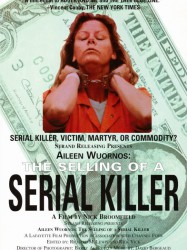 , 1h27
, 1h27Réalisé par Nick Broomfield
Origine Royaume-uni
Genres Documentaire, Policier
Thèmes La prison, Documentaire sur le droit, Documentaire sur une personnalité, Tueur en série, La peine de mort, Documentaire sur la police
Acteurs Nick Broomfield, Mike Reynolds
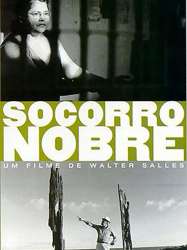
Socorro nobre (1995)
, 23minutesRéalisé par Walter Salles
Origine Bresil
Genres Documentaire
Thèmes La prison, Documentaire sur le droit, Documentaire sur une personnalité, Documentaire sur la police
Après avoir lu un article sur l'artiste polonais Franz Krajcberg dans le magazine Veja, la détenue Maria do Socorro Nobre décide de lui écrire une lettre. Socorro a été condamnée à plus de 21 ans dans une prison pour femmes au Salvador, Bahia, tandis que Franz est un artiste tourmenté qui a perdu sa famille et vécu son enfance dans un ghetto en Pologne, mais qui a survécu à l'Holocauste. Franz s'est installé au Brésil et a retrouvé le goût de la vie en vivant près de la nature. Il inspire Socorro à rêver de nouveau à la vie.

The Farm: Angola, USA (1998)
, 1h28Réalisé par Jonathan Stack, Liz Garbus
Origine Etats-Unis
Genres Documentaire
Thèmes La prison, Documentaire sur le droit, Documentaire sur la police

Origine Etats-Unis
Genres Documentaire
Thèmes La prison, Documentaire sur le droit, Documentaire sur la police
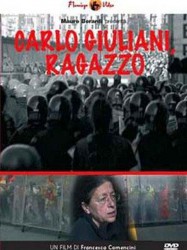
Carlo Giuliani, ragazzo (2002)
, 1h15Réalisé par Francesca Comencini
Genres Documentaire
Thèmes Film libertaire, Documentaire sur le droit, Politique, Documentaire sur la police
 , 1h58
, 1h58Réalisé par Felipe Cazals
Genres Documentaire
Thèmes Documentaire sur le droit, Documentaire sur une personnalité, Documentaire sur la politique, Politique, Documentaire sur la police
Acteurs Vanessa Bauche
 , 1h3
, 1h3Réalisé par John Borowski
Origine Etats-Unis
Genres Documentaire, Historique, Policier
Thèmes La prison, Documentaire sur le droit, Documentaire sur une personnalité, Tueur en série, La peine de mort, Documentaire sur la police
Acteurs Tony Jay

Prison Ball (2003)
, 1h30Origine Etats-Unis
Genres Documentaire
Thèmes La prison, Sport, Basket-ball, Documentaire sur le sport, Documentaire sur le droit, Documentaire sur la police
Acteurs Ice-T

Bunso (2005)
, 1h4Origine Philippines
Genres Documentaire
Thèmes L'enfance, La prison, Documentaire sur le droit, Documentaire sur une personnalité, Documentaire sur la maltraitance des enfants, Documentaire sur la police, Maltraitance des enfants
Ditsi Carolino received the Best Director award for the documentary film Bunso (The Youngest) at the OneWorld 2005 documentary films festival held in Prague, Czech Republic.

Out of Bounds (2005)
, 1h22Origine France
Genres Documentaire
Thèmes La prison, Documentaire sur le droit, Documentaire sur la police
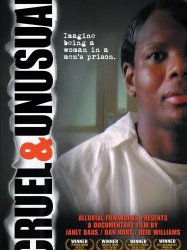
Cruel and Unusual (2006)
, 1h6Réalisé par Janet Baus
Origine Etats-Unis
Genres Documentaire
Thèmes La prison, Sexualité, Homosexualité, Transsexuels et transgenres, Documentaire sur le droit, Documentaire sur l'homosexualité, Documentaire sur une personnalité, Documentaire sur la police, LGBT, LGBT
According to the film, prisoners in the United States are incarcerated in men's or women's prisons depending on their biological sex (or, more specifically, whether they have male or female genitals), and not their gender identity. As a result, pre-operative trans women are incarcerated in men's prisons, and trans men in women's prisons.
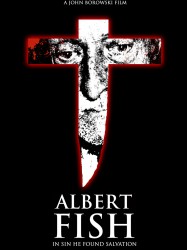 , 1h26
, 1h26Réalisé par John Borowski
Origine Etats-Unis
Genres Documentaire, Horreur, Historique, Policier
Thèmes La prison, Documentaire sur le droit, Tueur en série, La peine de mort, Documentaire sur la police
Acteurs Tony Jay
(DVD description) Albert Fish tells the horrific true story of a sadomasochistic cannibal, child molester, and serial killer, who lured children to their deaths in Depression-era New York City. Elderly but still deadly, Fish was inspired by biblical tales as he took the stories of pain, punishment, atonement, and suffering literally as he preyed on victims to torture and sacrifice.

The Dhamma Brothers (2007)
, 1h16Genres Documentaire
Thèmes La prison, Religion, Documentaire sur le droit, Bouddhisme, Documentaire sur la police
 Connexion
Connexion